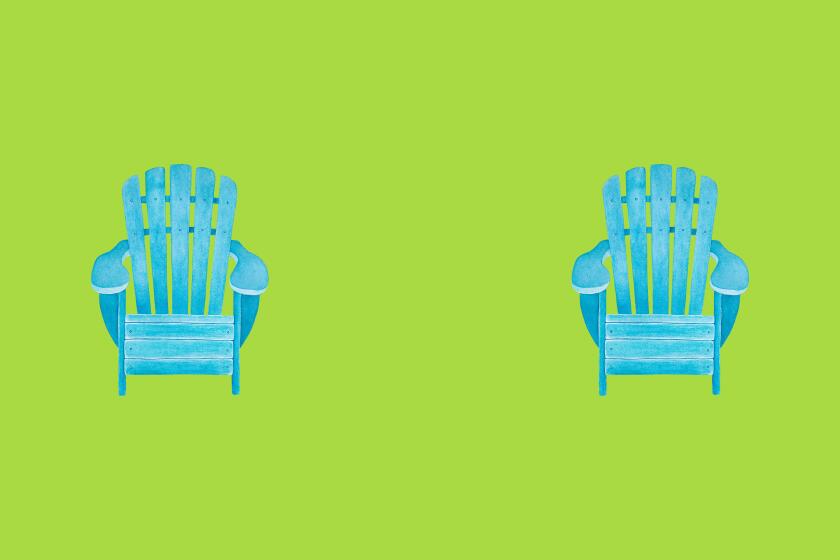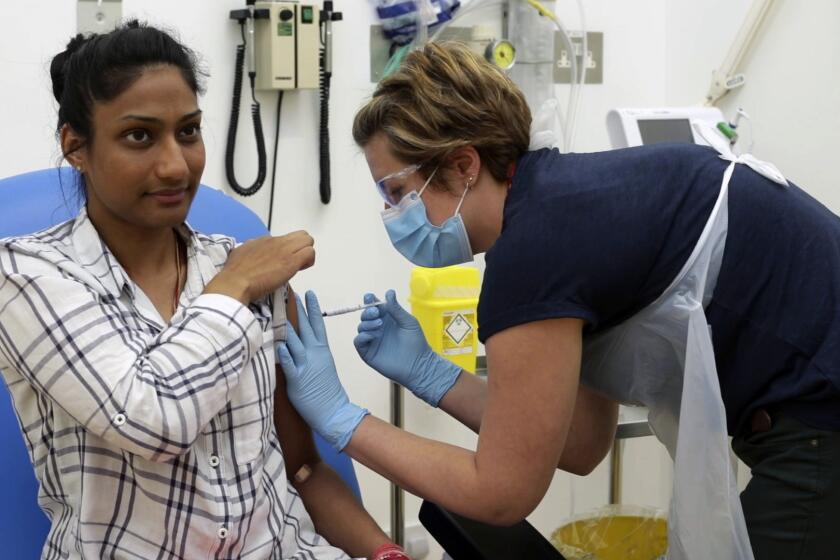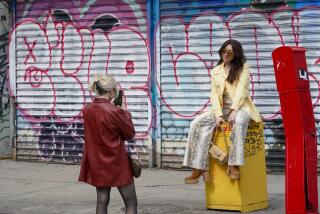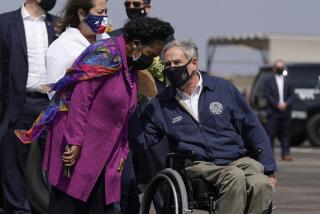‘How this goes is up to all of us’: Parts of New York and other states reopen, but Cuomo urges caution
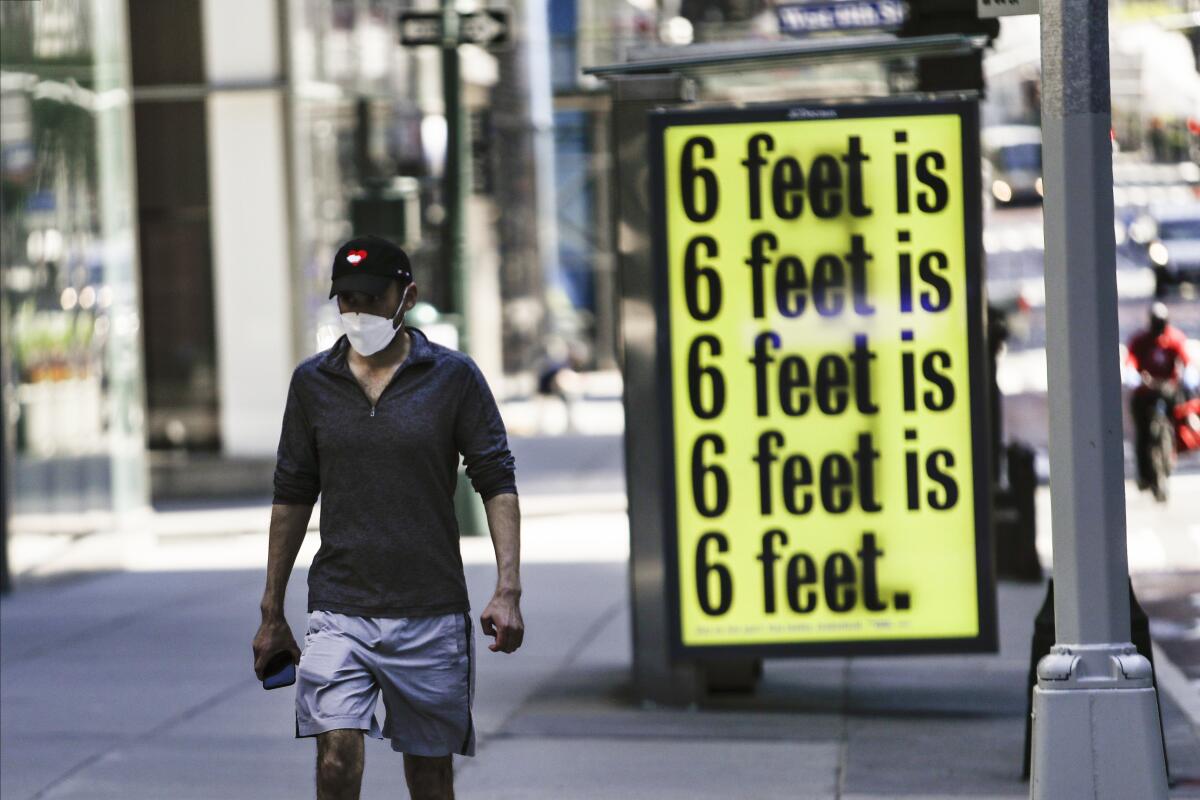
After nearly two months on coronavirus lock down, New Yorkers in some regions of the state started a slow reopening process on Friday. In New Jersey, some popular Jersey Shore beaches opened up again. And as the weather warms up, hard-hit New York City will deploy thousands of “social distancing ambassadors” to try to reduce the crowding that can help spread of coronavirus.
Several states eased restrictions on Friday, as the U.S. death toll from COVID-19 surpassed 87,400, including New York, where the death toll has passed 27,800. But Gov. Andrew Cuomo urged his constituents to remain cautious.
“We’re starting to turn the activity valve. Watch what happens to the infection rate, testing rate, hospitalization rate,” Cuomo said Friday during his daily briefing. “If those numbers start to move, slow down on the activity level.”
Five regions in upstate and central New York were allowed to reopen retail stores for curbside or in-store pickup and resume construction and agricultural operations, after meeting public health experts’ criteria, including a two-week decline in hospitalizations and deaths, increased testing capacity and availability of hospital beds. Cuomo late Thursday extended a stay-at-home order until June 13 for areas that have not met benchmarks for reopening. He said 132 New Yorkers died of COVID-19 in the 24-hour period that ended Thursday.
Restrictions were also loosened in parts of Oregon, Louisiana and Virginia, with strict social distancing protocols.
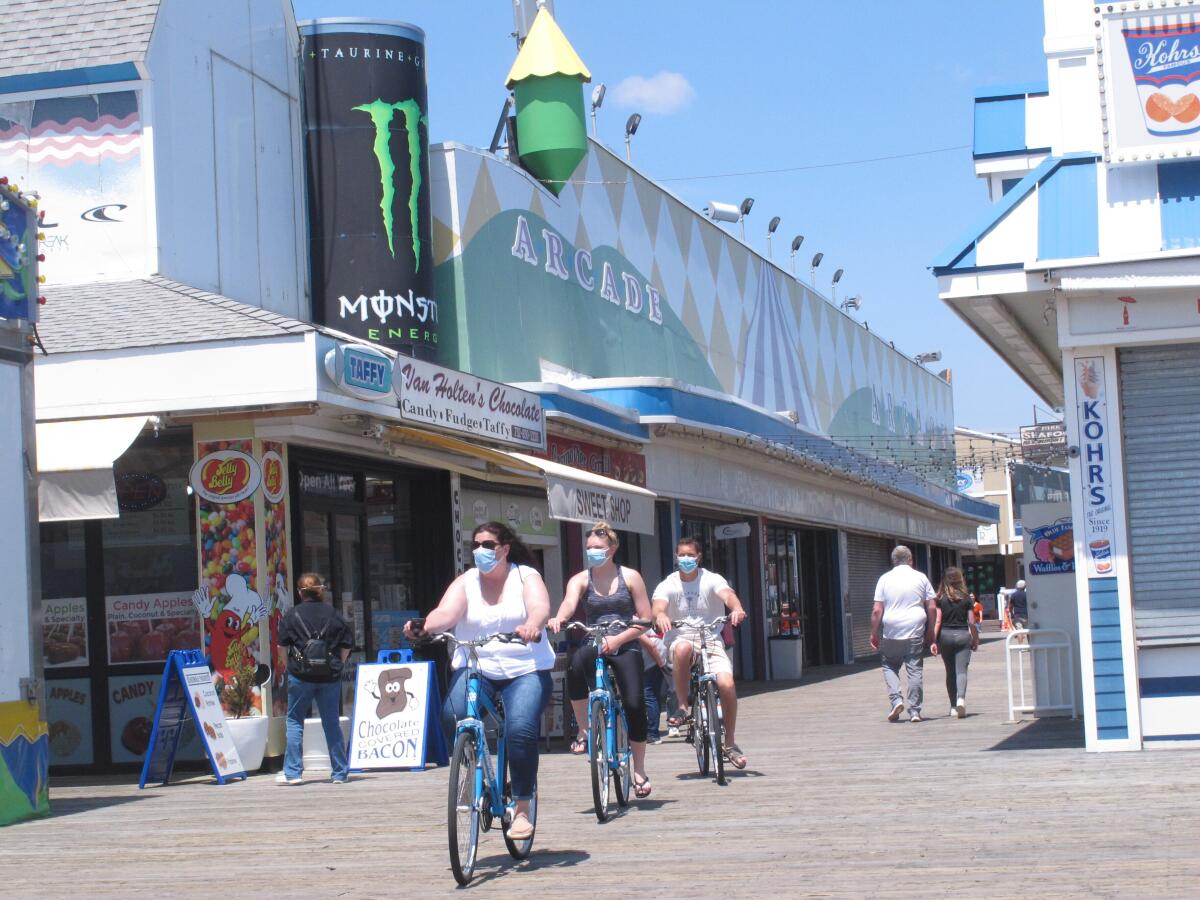
Restaurants, bars, retail stores and gyms in 31 counties in Oregon are open for business again. In much of Virginia, residents are allowed to roam retail stores (which must stay below 50% capacity), but beaches, gyms and in-restaurant dining rooms remain off-limits.
Starting May 22 in Tennessee, capacity restrictions for restaurants and retail stores will be lifted in most of the state, but social distancing guidelines will still be enforced, according to the Tennessee’s Economic Recovery Group. Larger businesses including racetracks, amusement and water parks, theaters and museums, will have to abide by capacity restrictions and social distancing requirements that will be issued next week.
“We’re able to allow restaurants and retail businesses to operate at greater capacity and large attractions to open in a safe and thoughtful way,” Tennessee Gov. Bill Lee said Friday in a statement.
If beaches and businesses are reopening, does that mean I can visit my friends and family now? The new rules on socializing during social distancing.
Amid a bleak economic forecast and staggering jobless rates, governors across the nation have faced mounting pressure by President Trump and Republican lawmakers to reopen economies, even against experts’ advice.
The U.S. Centers for Disease Control and Prevention released guidelines Thursday to help public officials decide how and when and states should reopen businesses, schools, camps, day-care centers and mass transit.
The CDC said workplaces should remained closed unless employees have the proper protective gear and that schools, child-care centers and camps should not reopen unless they are able to monitor people for the virus. The agency said restaurants and bars should limit party sizes and change floor plans to encourage social distancing.
White House guidelines for state reopenings include a downward trajectory of documented cases or of percentage of positive tests over a 14-day period. Experts have said that robust testing and contract tracing are key for the safe easing of restrictions.
Louisiana was once considered a coronavirus hot spot, with more than 2,400 people dead from COVID-19, according to Johns Hopkins. The number of confirmed infections continues to rise, but the percentage of new cases relative to an increasing number of tests has been falling. The number of hospitalizations for the disease has fallen since early April.
But starting Friday, the state is allowing residents to attend church services in person and to dine at restaurants, so long as people follow strict limits on capacity and social distancing requirements. Museums, movie theaters, gyms and malls can also reopen, with businesses operating at 25% capacity.
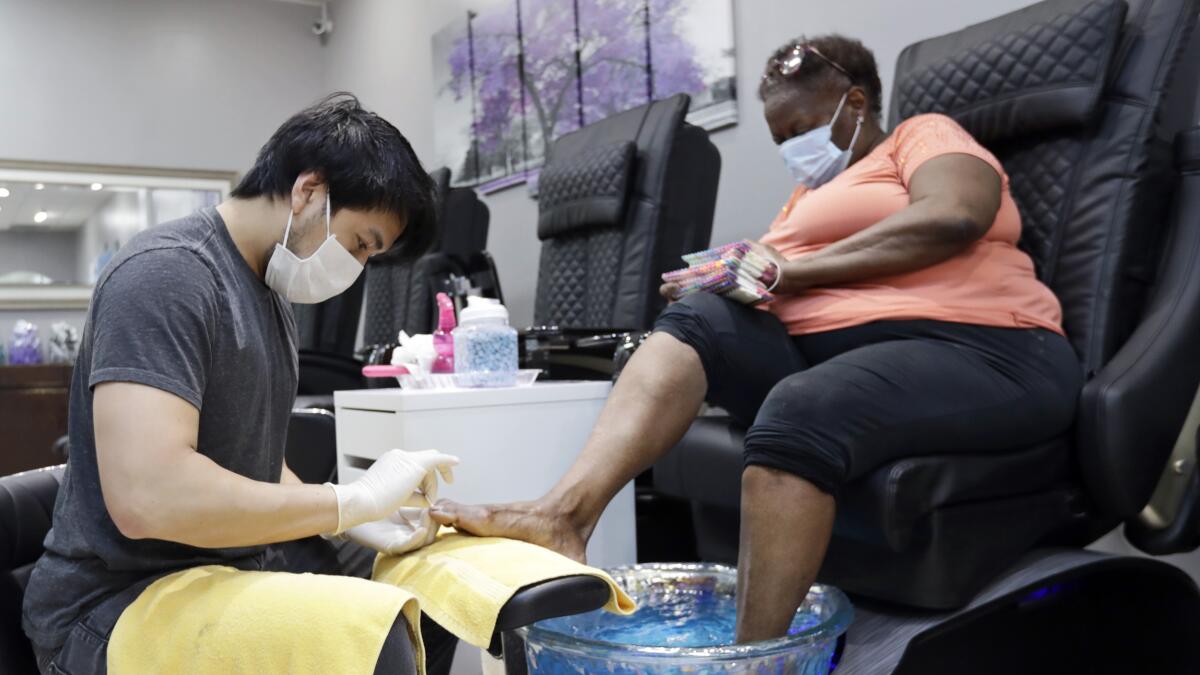
Casinos can reopen May 18 with a 50% reduction in slot machines and tables, Gov. John Bel Edwards wrote in a plan posted to the state government’s website Thursday. Edwards had already begun to ease some restrictions but he celebrated Friday as the first official day of a phased reopening.
“Thanks to the hard work of the people of Louisiana under the Stay at Home order, we have seen declining new COVID-19 cases and hospitalizations. This, coupled with increased testing and contact tracing capacity, is what is allowing us to move to Phase 1 on Friday,” Edwards said in a statement Thursday.
“This is not a mission accomplished or a victory against COVID-19, but it is a positive and hopeful move for Louisiana.”
In hard-hit New Orleans, Mayor LaToya Cantrell is continuing restrictions for an additional day.
President Trump outlined what he called a “warp speed” effort to develop and deploy a COVID-19 vaccine by year’s end. Even those leading the effort say chances of meeting that deadline are low.
Meanwhile, in New York City — the epicenter of the outbreak in the U.S. — Mayor Bill de Blasio announced Friday that “2,260 social distancing ambassadors and supervisors” will be deployed throughout the city to help monitor parks, beaches and other areas where overcrowding might happen and encourage people to maintain proper social distancing.
De Blasio also said each New York Police Department precinct has a car dedicated to respond to social distancing complaints.
“Where we see the greatest danger to lives in terms of the coronavirus and the area where we can enforce it is around gatherings, particularly large gatherings, so that’s where we are going to focus,” he said.
As warmer weather approaches, some coastal states, including New York, are beginning to implement an array of policies for beaches. De Blasio, however, signaled that the city’s beaches would remain closed.
State Sen. Todd Kaminsky said Friday that if beaches in New York City are closed, New Yorkers might swarm beaches in Long Island, creating the potential for large crowds which would make social distancing rules more difficult to follow.
“Really glad beaches can be open next weekend BUT if NYC beaches are closed, it will create a chaotic and untenable situation on Long Island. For the good and health of all New Yorkers, the City MUST open their beaches for Memorial Day weekend,” Kaminsky wrote on Twitter.
In South Florida, many beaches remain closed. But Trump’s beachfront Mar-a-Lago club in Palm Beach will begin to partially reopen to members beginning this weekend. In a Thursday email first obtained by the Washington Post, members were told the main building, which includes hotel rooms and main dining area, would remain closed and that they would have to practice social distancing and bring their own towels.
In Pinellas County, Fla., people are allowed to bring chairs and towels to beaches, but no more than 10 people are allowed to be part of one group of beachgoers and people are to remain six feet apart from others not in their party.
Many beaches in New York, New Jersey, Connecticut and Delaware will be allowed to reopen in time for Memorial Day weekend. Cuomo gave the green light for his state, but said the decision for locally controlled beaches ultimately rests with city and county officials.
“If they choose to open, they must adopt the state’s requirements at a minimum,” he said Friday. “Local governments must fully enforce minimum rules and may impose additional conditions.”
Cuomo said beaches in state parks, including Jones Beach and Robert Moses State Park on Long Island, may reopen.
Beaches in the state must be kept to no more than 50% capacity, employees must wear face masks, and visitors will have to wear face coverings when they can’t social distance. Cuomo also said group activities, such as volleyball and contact sports will be prohibited.
The beach openings as well as other easing of restrictions in the state depend heavily on the work of local governments, Cuomo said.
“We’ve seen cities open, we’ve seen them then close because the activity level went up too high too fast.... A lot of it is going to fall on the local governments. We need them to really step up here on the compliance for businesses and individuals,” Cuomo said.
“How this goes is up to all of us.”
More to Read
Sign up for Essential California
The most important California stories and recommendations in your inbox every morning.
You may occasionally receive promotional content from the Los Angeles Times.
